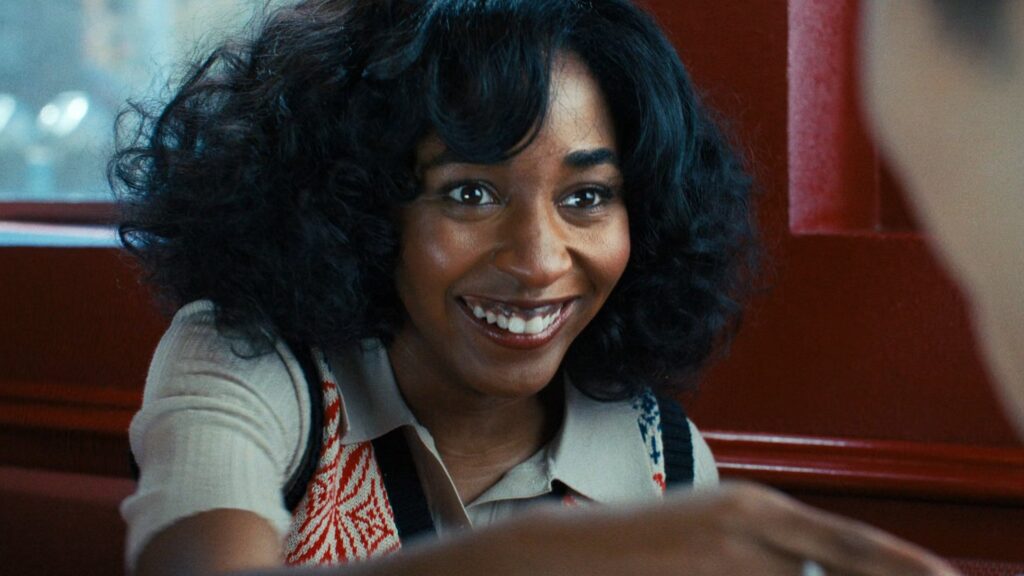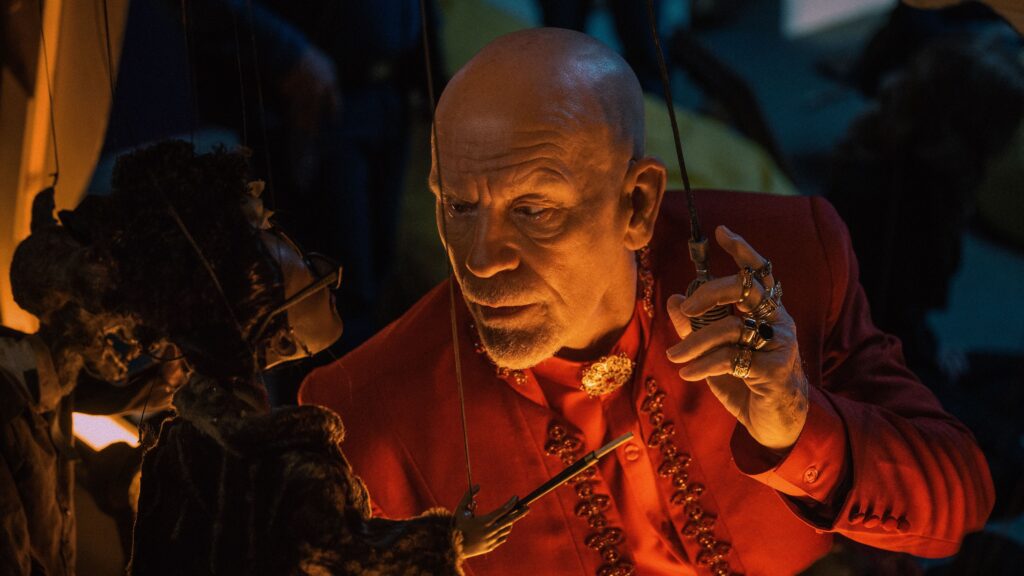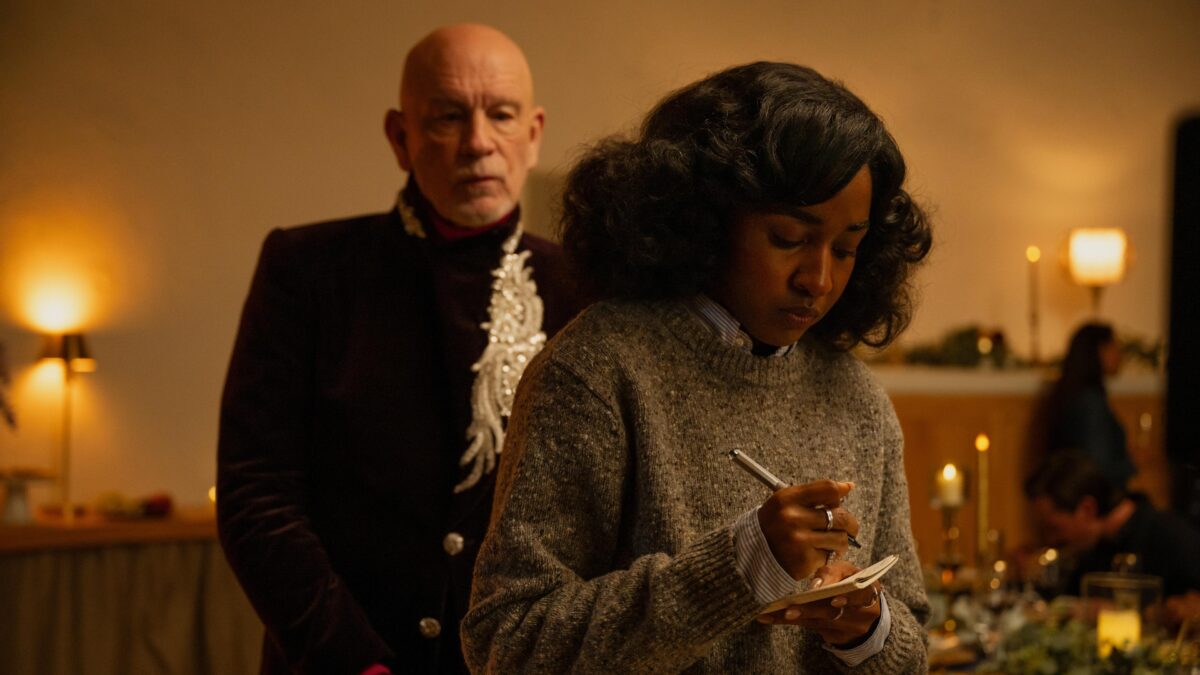Anti-magnum
Like most movie lovers, I typically seek out films I think I will like, or at least find fascinating. I haven’t run the numbers in a while, but I imagine my reviews on average tilt slightly positive. My stinker detector is pretty well honed at this point. 2025 has already handed me a few genuine clunkers, but they were films for which I ignored that stinker detector and went in with low expectations: Love Hurts and The Electric State are each a unique flavor of audience-insulting disaster. Opus, though, is a different kind of bummer: It’s earnestly trying to be good, and, despite mixed reviews and bad word-of-mouth, I had hope that it might be worthwhile as I dimmed the lights and hit play.
Alas. Opus is a mind-boggling failure. Not in the “so bad it’s fun” category, or even the “they took a swing” tier. This is a whiff on every single beat, idea, and gesture. I’ve rarely seen a film so uniformly mis-calibrated. There is exactly one moment I think works: an early dinner scene meant to convey the weirdness of the place our protagonist Ariel (Ayo Edebiri) has just entered. Everyone shares a single loaf of bread as the meal progresses, each person taking one solemn bite, then passing it on. It’s a small but perfectly off-kilter touch, unsettling without rubbing your face in it. From there, the movie slides into a rhythm of dull nonsense punctuated by a few bursts of artless violence.

The premise has promise: reclusive, beloved pop star Alfred Moretti (John Malkovich), known as the “Wizard of Wiggle,” invites a handpicked crew of media types to his Utah desert compound for a mysterious “listening party,” only for it to slowly unravel as it becomes clear that Moretti’s remote mansion is in fact the home for a cult. One surprising invitee is a low-rung journalist, Ariel, who senses something is off from the start. She becomes increasingly harried and desperate to absolutely no insight or boiling tension.
The screenplay is a crime scene: underdeveloped characters, tonal incoherence, and worldbuilding that’s both uncooked and over-complicated. The Levelists, Moretti’s followers, have no coherent aesthetic or tone or belief system, just generic “cult on TV” vibes. They grow gradually more unhinged across the runtime, but not with any sort of gnawing dread or unease. They just kinda plod along with their insanity, making poisonings and furniture made of human parts and mass suicides seem dull.
What’s especially frustrating is that Opus clearly wants to have something to say. Its cast and crew are working hard. It’s trying, Jennifer. Like plenty of recent A24 and Neon jams, it borrows the bones of Get Out. But first-time director-writer Mark Anthony Green forgets to graft on an actual perspective or defining image. Green (who is Black) casts a Black woman in the lead but does nothing of note with her cultural lens — in either the text or, honestly, the subtext. There’s surely a story to tell about a white pop star co-opting Black musical traditions and legacy while surrounding himself with a mostly white group of worshiping followers, but Opus has zero interest in mining that tension. The whole movie is a vague gesture toward satire without ever locating a target.

In a vacuum, I don’t hate a few of the individual components, particularly the lead actors. Edebiri makes pretty much any project better, including Opus — she brings clarity and wit to a character whose motivations are never quite readable in the script. Malkovich is totally game in a role hand-crafted for his presence, creepy and arrogant and yet still charismatic, even if the material gives him little to do beyond menace and monologue. Danny Bensi and Saunder Jurriaans’ score builds a low-grade unease that, in another movie, could have been the scaffolding of some real movie feelings. (Maybe seeing it on the big screen with booming speakers would have helped.)
The film’s few strengths are wasted. Opus isn’t even car-crash bad or a fun fiasco — it’s just bad bad. Unlike The Electric State and Love Hurts, I did not spend most of the runtime in a state of righteous anger at corporate boardroom-engineered content slop. I was just sad. Disappointed. Sometimes creatives make the wrong choices and overestimate their abilities. Sometimes they cannot execute on their ideas. Sometimes art just fails.
And so now I face the dilemma of whether to give Opus bottom marks. I admit I am tempted. But I reserve the one-out-of-eight for films that are both non-functional and morally or intellectually bankrupt. Opus is at least legible and has fleeting moments of charm. Its leads are likeable. That’s enough to get you out of the lowest rung. (Plus, I don’t think I can in good conscience say this is as bad as The Electric State.) I fear that I have gotten trigger-shy with “Very Not Good” — after “awarding” it five times in 2022 and once in 2023, I have only given the rating out once in 2024 and 2025 combined. I guess that’s my resolution for the rest of the year — find some films I truly despise. Opus isn’t one of those film, but it’s a lot closer than I ever would have guessed.
Is It Good?
Not Good (2/8)
Dan is the founder and head critic of The Goods. Follow Dan on Letterboxd. Join the Discord for updates and discussion.


3 replies on “Opus (2025)”
I got the distinct impression from the trailer that this was looking to ride “The Menu”‘s coattails.
Yeah it’s definitely in the lineage of The Menu (and definitely not as good). I still think it all ties back Get Out even though it’s about class more than race. But Malkovich’s character has a LOT of overlap with Fiennes in The Menu.
Yeah, “Get Out” definitely inaugurated the current mode of topical horror-thrillers.